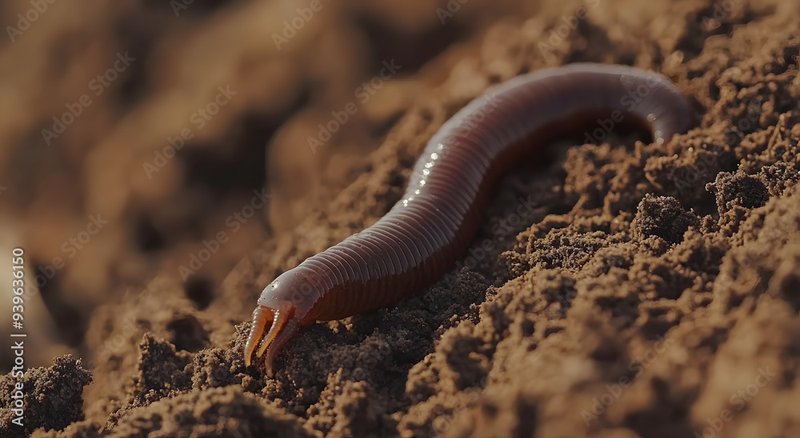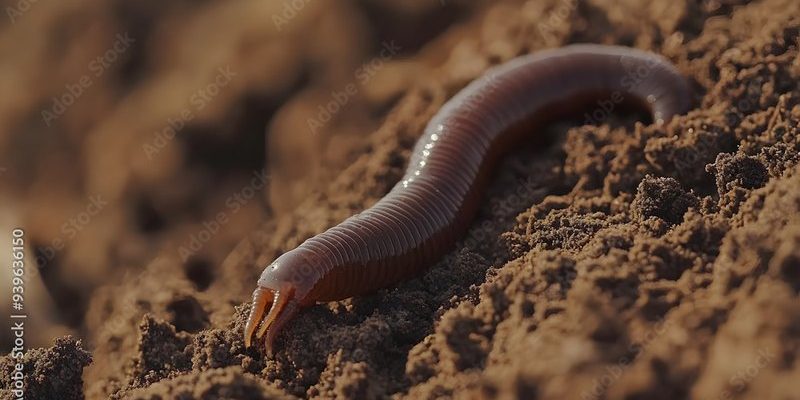
You might be wondering how such small creatures can have such a big impact. To put it simply, earthworms create tunnels as they move through the soil. These tunnels allow air and water to flow in, providing vital nutrients to plants. Without them, soil can become compacted and lifeless. So, let’s dive deeper into how earthworms contribute to soil aeration and why it matters for our gardens, farms, and natural ecosystems.
What Are Earthworms and Why Do They Matter?
Earthworms are fascinating creatures that belong to a group called annelids. They come in various sizes, with some growing just a few inches long, while others can reach over a foot! Their soft, segmented bodies might seem simple, but they play a complex role in our environment. One major reason they matter is their ability to improve soil health.
Imagine a garden where plants are weak and struggling; this could be due to compacted soil that restricts their growth. That’s where earthworms come into play. By burrowing through the ground, they create channels that allow air and water to penetrate deeper layers of soil, much like a straw helps you sip your drink. This process not only helps to aerate the soil but also encourages beneficial bacteria and fungi to thrive.
Additionally, earthworms are nature’s recyclers. They consume decaying organic matter, breaking it down into nutrient-rich castings, or worm poop, that enriches the soil. So you see, these little creatures do way more than just wiggle around—they’re essential players in keeping our ecosystems healthy!
How Do Earthworms Aerate the Soil?
When earthworms move through the soil, their bodies push aside dirt, creating tunnels that promote air and water movement. These tunnels are crucial for several reasons. First, they allow oxygen to reach plant roots. Plants need oxygen for respiration, much like we do. Without it, roots can become starved and eventually lead to poor plant growth.
Second, those tunnels help facilitate better drainage. During heavy rains, excess water can create puddles, which can drown plants. Earthworms help mitigate this by allowing water to filter through the soil more efficiently. You might think of it as a natural plumbing system, ensuring that everything flows smoothly.
Lastly, earthworm tunnels also encourage healthy soil structure. They mix organic matter with soil particles, which helps create aggregates—clumps of soil that improve overall soil stability. This means the soil can hold more nutrients and moisture, making it a more hospitable place for plants to grow.
The Benefits of Healthy Soil Thanks to Earthworms
The benefits of having earthworms in your soil are manifold. To start, they improve soil fertility. As they consume organic matter and convert it into castings, these nutrient-rich deposits become available for plants to absorb. This natural fertilization process reduces the need for chemical fertilizers, which can be harmful to the environment.
Moreover, healthy soil structure enhances plant resilience. Plants grown in well-aerated soil can better withstand droughts and floods. By having easy access to air, water, and nutrients, they’re less prone to diseases and pests. Consider it a protective shield; earthworms play a big part in ensuring that plants have what they need to thrive.
Lastly, the presence of earthworms indicates a healthy ecosystem. If you see them in your garden, it usually means your soil is alive and balanced, which is a great sign for any gardener or farmer. It’s like having a personal indicator of soil health right in your backyard!
How to Encourage Earthworms in Your Garden
If you want to reap the benefits of earthworms in your soil, there are several easy steps you can take to create a welcoming environment. First, add organic material to your garden. Compost, grass clippings, and leaf litter not only provide food for earthworms but also improve soil structure. Think of it as throwing a party for them; the more organic matter you offer, the more guests you’ll attract!
Another effective strategy is to minimize soil disturbance. Tilling your soil can disrupt the habitats of earthworms, making it harder for them to thrive. Instead, consider methods like no-till gardening, which keeps the soil intact and retains the earthworm population.
Lastly, make sure to maintain moisture levels in your garden. Earthworms prefer damp environments, so regular watering can encourage their presence. Just be cautious not to overwater, as this can lead to waterlogging, which isn’t good for either your plants or the earthworms!
Why Are Earthworms Important for Agriculture?
In agriculture, earthworms are invaluable allies. They help promote sustainable farming practices by naturally enhancing soil health and fertility. Farmers who recognize the role of earthworms often find it easier to grow crops without relying heavily on chemical fertilizers. This not only saves them money but also contributes to a healthier environment.
Additionally, earthworms aid in pest control. Healthy soil, supported by earthworms, fosters the growth of beneficial organisms that prey on pests. This means that farmers can achieve higher yields while minimizing pesticide use, which is better for both crops and the ecosystem.
Moreover, as climate change becomes a more pressing issue, the role of earthworms in soil management can’t be overstated. Healthy, aerated soil retains moisture better during drought conditions, reducing the need for irrigation. It’s a win-win situation that benefits both farmers and our planet.
In summary, earthworms play a crucial role in soil aeration and maintaining healthy ecosystems. By creating channels in the ground, they allow air and water to nourish plants, improve soil fertility, and promote a balanced environment. Their presence indicates that the soil is teeming with life, which is essential for thriving gardens and agricultural systems.
So, next time you see an earthworm, remember that these small creatures are doing big work beneath our feet. Whether you’re a gardener, a farmer, or just someone who appreciates nature, understanding the role of earthworms can help you create healthier soils and, ultimately, a healthier planet.

